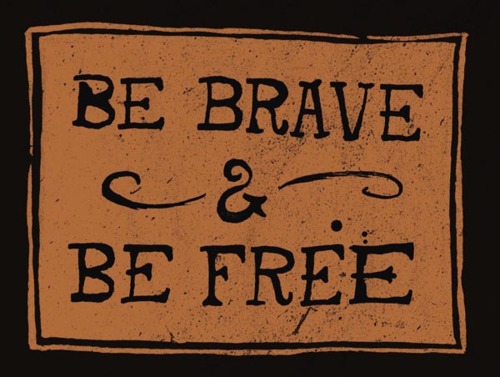What is True?
 I was driving home from the grocery store yesterday, and I was stopped a few cars down from a red light. On the righthand corner ahead of me, there was a man who looked to be in his 30s with a cardboard sign that read "We are people too."
I liked that, and wholeheartedly agreed with the sentiment. And while he wasn't openly asking for money, his sign and where he was standing implied that that's what he was requesting from those of us driving by.
I was driving home from the grocery store yesterday, and I was stopped a few cars down from a red light. On the righthand corner ahead of me, there was a man who looked to be in his 30s with a cardboard sign that read "We are people too."
I liked that, and wholeheartedly agreed with the sentiment. And while he wasn't openly asking for money, his sign and where he was standing implied that that's what he was requesting from those of us driving by.
A few seconds later, the light changed to green, and everyone started rolling forward. As I drove by, I noticed he had folded the sign in half so that it read something else:
"Go fuck yourself."
When I read that, the first thing I felt was surprise.
And then relief.
It was striking. While I'm sure that's what a lot of people asking for money on the streets want to say after they've been ignored, yelled at, or demeaned, I've never actually seen a sign with that written on it.
It was refreshing to see someone in real life - someone who was socially and physically vulnerable, no less - say exactly how he felt. "Go fuck yourself."
How often do you hear or speak the truth at work? How often does a message come in loud and clear from someone's mouth? Coming from the world of Human Resources, I've seen my fair share of spin in the workplace.
"We don't want to justify paying you more" becomes "Our research shows that this is the appropriate salary range for someone in your position."
"We have no intention of continuing your contract after three months" becomes "We'd like to see how you do in the role and then talk about the possibility of having you come on permanently."
"We have no idea where we're headed and everyone on the leadership team hates each other" becomes "We're excited about the future and are working hard to find strategic paths forward."
 Imagine a workplace that's been taken over by huge spiders weaving webs of total befuddlement and confusion. Everyone's walking around with sticky webs all over their bodies, leaving them tangled, heavy, and nearly blind.
Imagine a workplace that's been taken over by huge spiders weaving webs of total befuddlement and confusion. Everyone's walking around with sticky webs all over their bodies, leaving them tangled, heavy, and nearly blind.
Some people have been around the spinning of the webs for so long that they can hardly recognize the truth anymore - in themselves or in others.
Many of us have our polite, outward-facing selves - the parts of us that hold the sign that gently says "We are people too." While it's appropriate to keep good boundaries at work and keep some part of ourselves private, too many of us are walking around as victims and accomplices of the befuddlement spiders.
Have you ever shown someone the side of your sign that says "Go fuck yourself"? What keeps you from turning it over?
And the truth doesn't have to be angry like that - what keeps you from speaking other truths, like "I love you" or "I'm afraid" or "I don't believe that's fair"?

For most of us, it's fear and shame. But your truth can cut right through all of that, and it can also cut through the webs of confusion and mistrust that are so prevalent in many organizations today.
The day before I saw the man on the street with that sign, I used a tea bag that had a little message on it. It said "Truth is everlasting."
The truth isn't going anywhere, and it will come up again and again until we can't ignore it. Better to let it in with open arms than to continue being wrapped up in the webs that keep us trapped and confused.
What is true? What do you say to yourself before you make it nice and palatable for others?
What's on the back of your sign, and will you ever show it to us?
